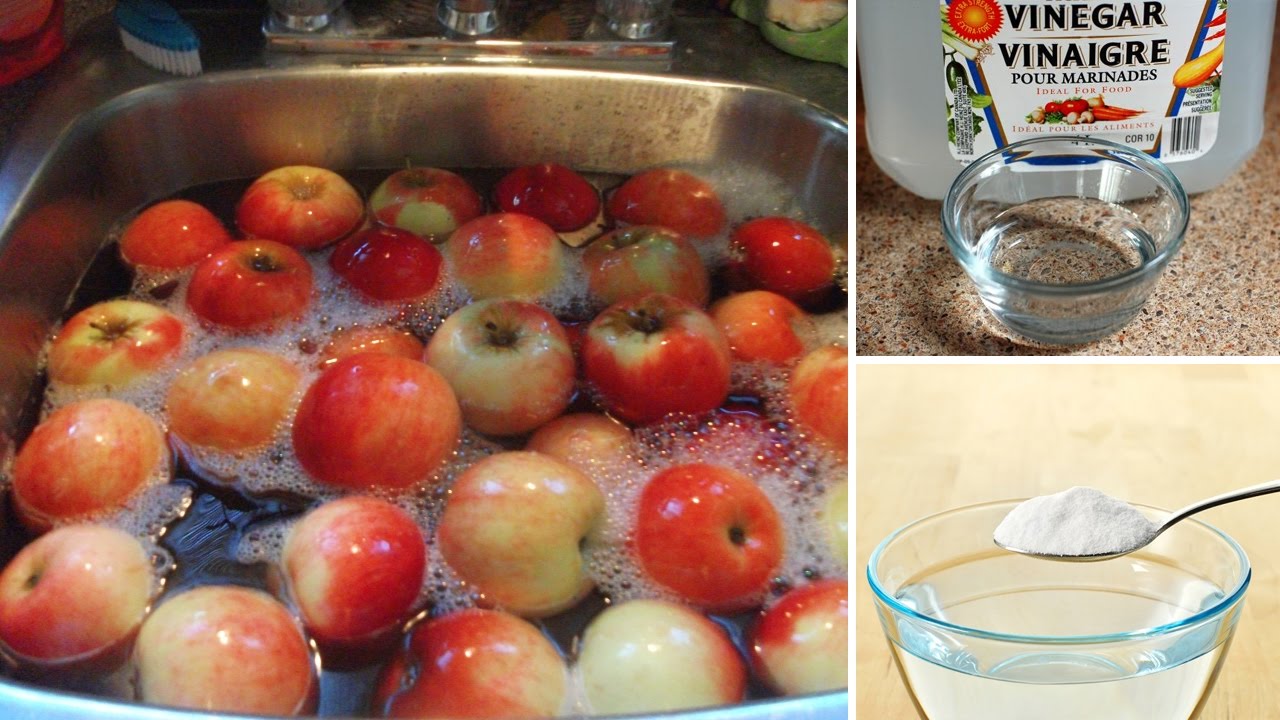
Believe it or not, there are chemicals in most of the fruit and vegetables that we eat every day.
These chemicals are called pesticides and are used by farmers to keep pests away from their crops.
However, sometimes some of the chemicals leave a residue on the fruit and vegetables.
Most of the time, the residue cannot be seen without a scientific microscope or perhaps a magnifying glass.
Even though we may not see the residue, we are likely still consuming it.
Too many of these chemicals can affect our health.
If fruit and vegetables are eaten raw, without properly being washed, you are ingesting chemicals.
This is important because pesticides can cause cancer. They can also damage your nervous system and reproductive system.
They can even cause birth defects to an unborn child.
It is important to note where you are purchasing your fruit and vegetables from and what types of chemicals, if any, that farmer uses.
When possible, buy organic fruit and vegetables so that you know no pesticides were used on your produce.
Regardless if you buy organic or not, it is important to properly clean your fruit and vegetables to remove any residue.
Below you will find a list of all-natural ways to clean fruit and vegetables.
These home tips can make you feel healthier, increase your lifespan, and decrease your risk of disease:
1. Vinegar
Vinegar is one of the most powerful ingredients that help to kill germs and pesticides from your fruit and vegetables.
– First, fill a sink with water.
– Then, add one cup of white vinegar.
– Rinse the fruit and vegetables in this solution.
– Once completed, place the fruit and vegetables in a clean bowl.
They are now ready to be eaten.
2. Baking Soda
Baking soda helps to remove the harmful pesticides and chemicals from fruit and vegetables.
– Add 5 glasses of water to a big bowl.
– Add 4 tablespoons of baking soda.
– Soak the fruit and vegetables in this solution.
– Wait 15 minutes and then remove the fruit and vegetables.
– Wipe them dry.
It is now safe to eat your healthy food.
3. Turmeric Water
Turmeric is a spice that acts as an antibacterial. That means that it can kill germs.
– To a bowl of boiling water, add 5 teaspoons of turmeric powder.
– Add the fruit and vegetables to the turmeric water.
– Rinse the fruit and vegetables in the turmeric water.
– Transfer the fruit and vegetables to a bowl of clean water.
– Wipe dry. Your fruit and vegetables are now safe to eat.
4. Salt
Salt is a well known compound found all over the world. It comes in several forms.
Rock salt and ground salt kills pesticides quickly:
– In a bowl of clean water, add one cup of salt.
– Add the fruit and vegetables to the salt solution.
– Allow them to soak in the water for 10 minutes.
– After 10 minutes, drain the salt water and add fresh water to the bowl.
– Rinse the fruit and vegetables in clean water 5 times before consuming.
The tricks and tips listed above will remove almost 90% of any residue left from any chemicals the farmer may use.
They allow you to clean your fruit and vegetables at home.
However, to be on the safe side, peel the skin off fruits and vegetables that have deep ridges on the skin.
These are locations where the chemicals cling onto and linger.
Happy eating!
If you like the video, give it a thumbs up and share it with your friends!
If you want more recipes and tips, subscribe to the channel!
For more information and references, check the article on our blog:
https://www.naturalcures.me/how-to-easily-remove-pesticides-from-your-fruits-and-vegetables/
Disclaimer: The materials and the information contained on Natural Cures channel are provided for general and educational purposes only and do not constitute any legal, medical or other professional advice on any subject matter. These statements have not been evaluated by the FDA and are not intended to diagnose, treat or cure any disease. Always seek the advice of your physician or other qualified health provider prior to starting any new diet or treatment and with any questions you may have regarding a medical condition. If you have or suspect that you have a medical problem, promptly contact your health care provider.
Images licensed under CC:
www.flickr.com
www.freestockphotos.biz
www.pixabay.com
commons.wikimedia.org
capl.washjeff.edu